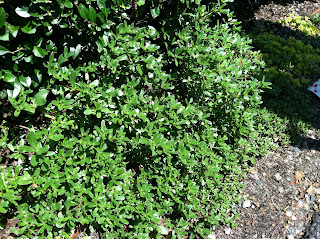Ancient Wisdom Modern Health: Acupuncture ~ Herbs ~ Food as Medicine Melissa and David Sokulski, L.Acs. Pittsburgh, PA For appointment, call or text (412) 381-0116
Friday, July 29, 2011
Beat the Heat with Watermelon, A Chinese Herb
Though we often think of Chinese herbs as dark brown strong-tasting teas, when we look deeper we find the ancient Chinese also acknowledged and documented the tremendous healing power of fresh food. Watermelon is not only a delicious summer treat, but it is also a powerful effective medicine, which can clear a potentially serious condition known in Chinese medicine as "summerheat".
Food has long been used as medicine, a tradition strong in the East as well as the West. As temperatures rise across the United States and Europe, we look for natural healthy ways to cool our bodies without taxing the environment. Xi gua, or watermelon fruit, is not just a delicious food, but also a Chinese herb known to relieve summerheat. Similar to sun stroke summerheat is a condition with symptoms of fever, sweating, diarrhea and thirst.
Summerheat is described in Chinese medicine as a condition induced by overexposure to excessively high environmental temperatures. The symptoms described are similar to those of sun stroke and include:
* fever
* restlessness
* thirst
* sweating
* dizziness
* nausea
* poor appetite
* diarrhea
* sudden collapse
Watermelon, or xi gua, is listed in the Materia Medica as a sweet and cold herb, which not only clears summerheat, but also generates fluids. Watermelon is especially good when there is thirst and dark urine present. One cup of fresh or juiced melon is the dose given. Watermelon is so high in water content (92 percent by weight) that juicing is easy: simply blend watermelon pieces in the blender, no straining is necessary. For an especially cooling summer treat blend the watermelon with ice.
Watermelon is a good source of vitamin C, beta carotene and lycopene. Watermelon and watermelon juice are cleansing and are often used to detoxify the body. It is also a good choice of food or juice to help lose weight.
In addition to clearing heat from the energy pathways in which it enters - the stomach, heart and bladder channels, watermelon is shown to have a positive effect on the liver: it expels jaundice and has been used in treating specific forms of hepatitis. Other foods which are used as herbs to clear summerheat include lotus leaf (he ye), mung bean (lu dou), and young soybean sprout (dou juan).
This summer use fresh watermelon as a way to keep yourself hydrated and cleansed and your body temperature down. Eating fresh watermelon is a safe healthy way to stay cool in summer.
In health,
David and Melissa Sokulski, L.Acs.
Labels:
Chinese herbs
Thursday, July 21, 2011
Cooling Wild Purslane is also Powerfully Medicinal
 (This article first appeared in Natural News. Here is a full list of all my Natural News articles. ~ Melissa Sokulski.)
(This article first appeared in Natural News. Here is a full list of all my Natural News articles. ~ Melissa Sokulski.)
Many plants which grow wild and are considered weeds are not only edible, but are also delicious, nutritious, and even medicinal. Wild purslane (Portulaca oleracea) which most consider a weed is actually a green vegetable with the highest amount of heart-healthy omega 3-fatty acids of any green. Purslane is also used extensively in Chinese Medicine as an herb which clears heat toxin.
Purslane is widespread across the United States, growing in fields, lots, lawns and gardens. It spreads along the ground, and it has fleshy leaves and a slightly sour taste. It is high in iron and has appreciable amounts of omega 3 fatty acids, which are more commonly found in seeds like flax and in fish. Purslane has .01 mg/g, a very high amount for land based vegetable sources. Purslane is excellent when used fresh in salads, and it can also be steamed or cooked into soups or added to dishes as spinach would be.
In Chinese Medicine, Portulaca oleracea is known as Ma Chi Xian. It is commonly used to treat dysentery, urinary infections, sores, and abscesses, and it is even used as an antidote for snakebites. More recently it has been used to treat post partum bleeding.
Extensive clinical research has been done on purslane in China, and it has been found to have extraordinary results:
- Antibiotic and antifungal effect
- Increases uterine contractions
- Prevention and treatment of dysentery: purslane was found as effective as sulfa drugs, over 90% effective in acute cases and 60% in chronic cases.
- Kills parasites: in one study of 192 patients, 80% were cleared of parasites in one month of treatment.
- Treats appendicitis: a decoction (strong tea) of purslane and dandelion (known as pu gong ying in China) treated 31 cases of clinically diagnosed appendicitis (only 1 needed surgery; all others recovered with no medical intervention).
Labels:
Chinese herbs,
herbs,
wild edible plants,
wild edibles
Subscribe to:
Comments (Atom)